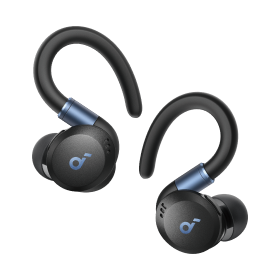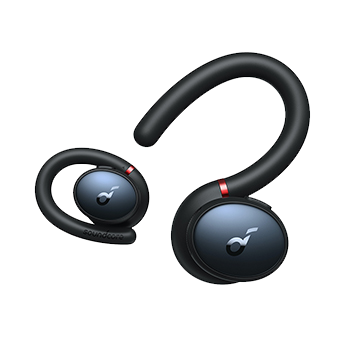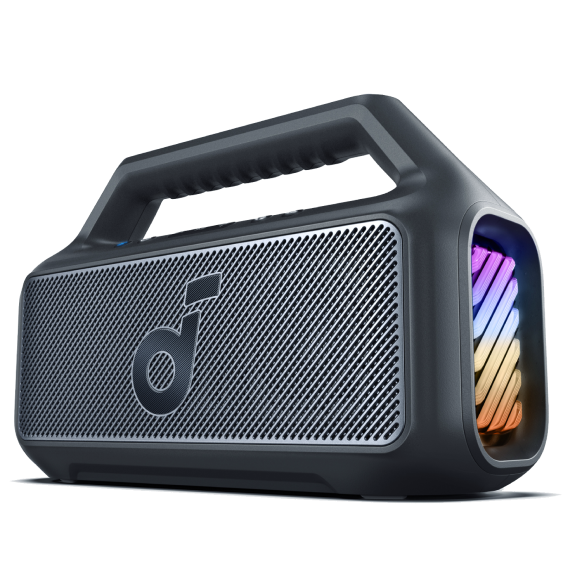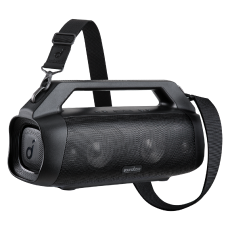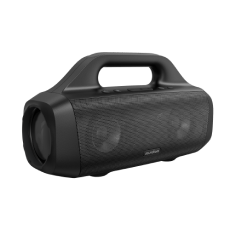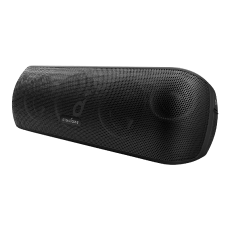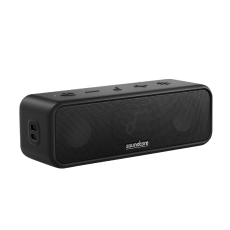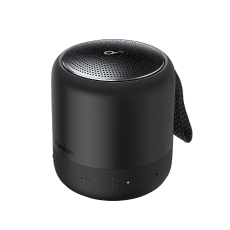Wired vs Wireless Headphones: Which to Choose?
In recent years, headphones have become an essential accessory for music lovers, gamers, and professionals alike. With the advent of technology, headphones have evolved from simple wired earbuds to sophisticated wireless ones. So are wired earbuds better than wireless ones or are they the same? Actually, wired vs wireless headsets both have their advantages and disadvantages, and it can be challenging to decide which one is better. In this article, we will explore the pros and cons of both types of headphones and help you decide which one is right for you.
Wired Headphones
Wired headphones, also known as traditional headphones, are popular with many music and audio enthusiasts. They are designed to be connected to a device using a cable that transmits the audio signals from the device to the headphones. The cable contains two channels, one for the left ear and one for the right ear, which carry analog signals that recreate the sound from the sources.
How do Wired Headphones work?
The working principle behind wired headphones is quite simple yet efficient. When you plug them into an audio source, whether a smartphone, computer, or music player, the audio signals are transmitted through the cable and into the headphones. Once they reach the headphones, the signals are converted into sound waves by the drivers, which are the loudspeakers inside the earcups or earbuds. The drivers consist of a magnet, a voice coil, and a diaphragm, which work together to produce high-quality audio output. Additionally, the design of the earcups or earbuds helps to seal in the sound, which provides a more immersive listening experience and prevents audio leakage to the surrounding environment.
Pros of Wired Headphones
- Better Sound Quality: Wired headphones typically offer superior sound quality compared to their wireless counterparts. This is because they can transmit uncompressed audio data without any signal loss or interference caused by Bluetooth or Wi-Fi.
- No Battery Required: Wired headphones do not require a battery to function, making them a reliable and hassle-free choice. This is particularly useful for long listening sessions or for those who forget to charge their wireless headphones.
- Improved Stability: Wired headphones are fixed to a physical cable, which means they won't accidentally disconnect or experience connectivity issues. This makes them more dependable, especially in high-stress environments like exercise or travel.
- Lower Latency: Wired headphones have almost zero latency, meaning there is no delay between the audio you hear and the video or other content you are watching. This can be important when using headphones for gaming or watching movies.
- Affordable: Wired headphones are generally cheaper than wireless headphones because they do not require advanced technology such as Bluetooth or NFC. This makes them an ideal choice for budget-conscious consumers or those who prefer to prioritize sound quality over features.

Cons of Wired Headphones
- Lack of mobility: The cable limits your movement and can be a hassle to untangle or manage, especially when exercising or on the go. Additionally, the cable can get damaged or wear out over time, requiring you to replace the entire set of headphones.
- Compatibility: Most new smartphones and laptops do not have a unifiedheadphone jack, requiring users to purchase an adapter or use wireless headphones instead. This can be a dealbreaker for some users who prefer wired headphones for their sound quality.
- Less durable: Wired headphones can be less durable than their wireless counterparts. With a cord, there's more chance of damage from accidental pulls, bends or twists. The cable may also fray over time and break, rendering the headphones unusable.
- Not waterproof: Many wired headphones are not waterproof, meaning you can't use them in the rain or while sweating during workouts. This can be a significant disadvantage, particularly for people who like to listen to music while exercising outdoors.
Wireless Headphones
Wireless headphones are a modern and practical innovation that has become increasingly popular in recent years. They are headphones without any cords or cables, allowing users to be free from tangled wires and to make the most of their portable devices. Wireless headphones come in different styles, including over-ear, on-ear, and in-ear, and can be used for various applications such as listening to music, podcasting, phone calls, and gaming.
How Do Wireless Headphones Work?
Wireless headphones function by utilizing radio frequency, infrared or Bluetooth technology to transmit audio signals without the need for wires. The headphones possess an in-built receiver that picks up the signal, decodes it, and converts it into sound waves that are then played through the headphones. Furthermore, wireless headphones are equipped with a rechargeable battery that powers the internal electronics and amplifiers that convert the audio signal into sound.
Pros of Wireless Headphones
- Mobility
Because they are not tethered to an audio source, the true wireless headphones provide greater freedom of movement and can be used anywhere, making them an ideal choice for exercising, commuting, or traveling. Especially when you want to wear earphones for sleeping, wireless earphones can prevent dealing with tangled wires while sleeping.
- Convenience
Unlike wired headphones, which can be a hassle to untangle and manage, wireless headphones do not have cables, making them easier to store and use. Additionally, many wireless headphones have touch controls or voice assistants, allowing for hands-free use.
- Compatibility
Wireless headphones are generally compatible with a wide range of devices, from smartphones and tablets to laptops and gaming consoles. This means you can use them with multiple devices, and switch between them easily.
- Style and design
After checking Bluetooth vs. wired headphones, many users opt for wireless headphones because of the variety of styles and designs available, allowing them to choose a pair that best suits their personal style. This means they can show off their wireless headphones as a fashion accessory, as well as a functional entertainment device.
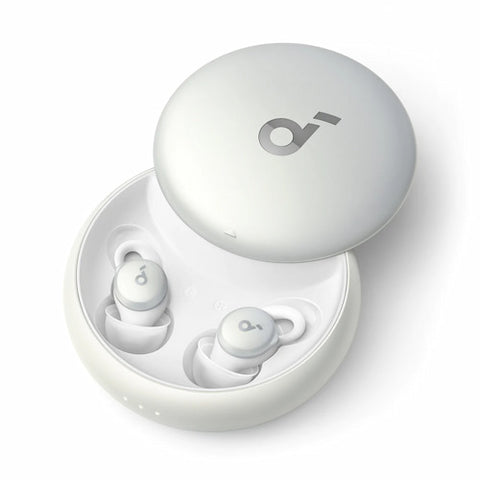
Cons of Wireless Headphones
- Sound Quality: The sound quality of wireless headphones may not be as good as wired headphones. This is because the audio signal has to be compressed to be transmitted wirelessly, which can result in some loss of sound quality.
- Battery Life: Wireless headphones are powered by batteries, which means that they need to be recharged regularly. The battery life of wireless headphones can vary greatly, with some models only lasting a few hours before needing to be recharged.
- Connection Drops: Wireless headphones can experience connection drops, which can be frustrating for the user. This can happen if the headphones are not in range of the device they are connected to, or if there is interference from other wireless devices.
- Price: Wireless headphones tend to be more expensive than their wired counterparts. This is because they require additional technology to enable them to work wirelessly.
Wired vs Wireless Headphones: Which is Better
About the question of wireless headphones or wired headphones which is better? The answer to this question depends on your personal preferences and needs.
If you prioritize sound quality and reliability, wired headphones are the way to go. However, if you need headphones that can be used anywhere and offer greater freedom of movement, that means you should consider the flexibility of headphones that are wired and wireless, then wireless headphones are a better choice.
FAQ about Wired vs Wireless Headphones
Are wired headphones safer than wireless?
Not exactly. A safety concern with wireless headphones is exposure to EMF and RF radiation which may be a little higher than with wired headphones. However, the levels of radiation emitted by both wired or wireless headphones are generally considered to be very low and are unlikely to cause any harm to the human body. On the contrary, wireless headphones give more freedom to move around while improper wire management of wired headphones, especially if they're entangled when you're walking and driving can pose potential safety risks.
Is wired better than wireless for gaming?
This depends. Many people may choose wired headphones for reliable connection and better audio performance. However, many brands today are also releasing quality wireless headphones incorporating Hi-Res audio, upgraded noise canceling, stable Bluetooth 5.3 connection, and long battery life, like what you get from soundcore wireless headphones - Space Q45 headphones. So generally you can choose according to what you like to get your best wired or wireless gaming headset.
Conclusion
Both wired and wireless headphones have their advantages and disadvantages. Wired headphones offer superior sound quality and reliability, while wireless headphones provide greater mobility and convenience. Ultimately, the choice of Bluetooth vs wired headphones depends on your personal preferences and needs. Therefore no matter which type of headphones you choose it is important that you take your time researching its features in order to find the best wired and wireless headphones that suit all your requirements.














